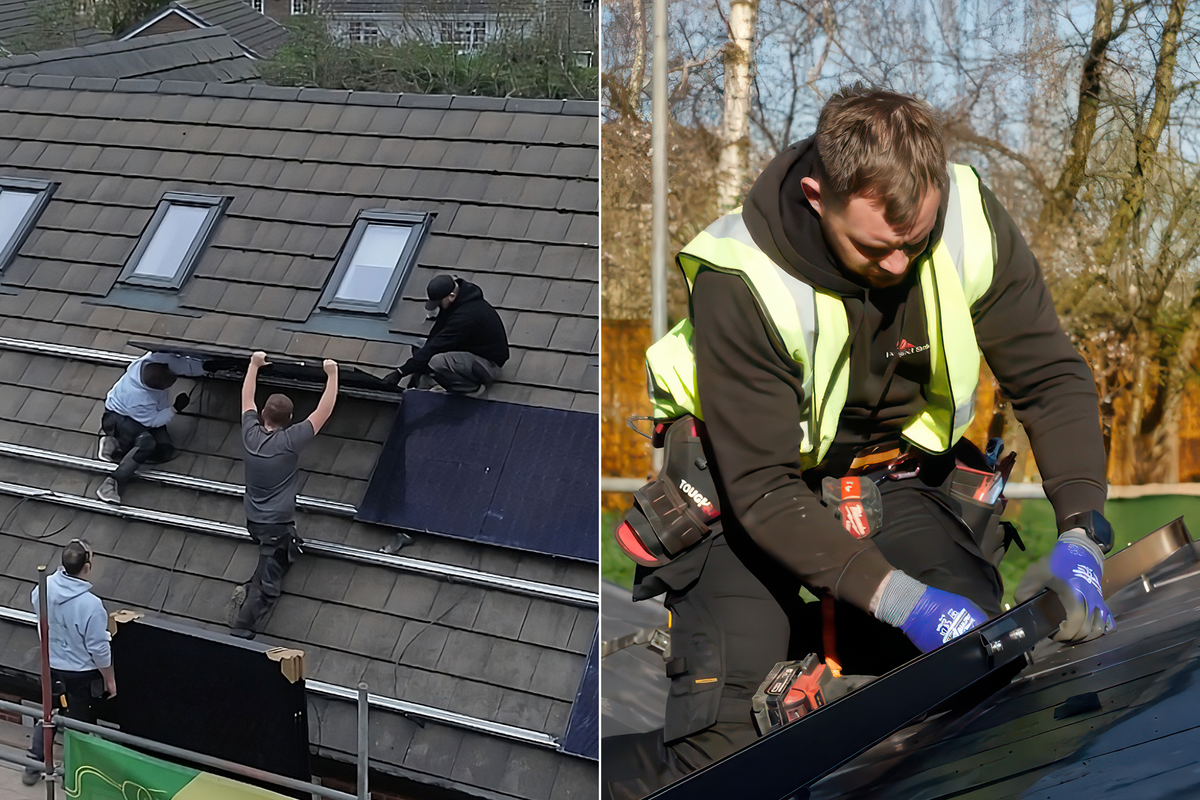Top Stories
Solar Panel Growth in the UK: Top Picks for 2025 Revealed

As energy prices remain high, homeowners in the UK are increasingly considering solar panels as a viable solution to reduce electricity costs. By mid-August 2025, solar electricity generation in Britain surpassed the total output for 2024, reaching an impressive 14.43 billion kWh. This amount is sufficient to power over five million homes and reflects a 20 percent increase in national solar capacity, coinciding with the sunniest spring on record.
The rise in solar panel installations has been remarkable, with domestic installations climbing by 22 percent in the first half of 2025. Approximately 2 GWp (gigawatt-peak) of new solar capacity was added during this period, marking the fastest growth rate in a decade. This surge has attracted numerous manufacturers and installers to the UK market, complicating the decision-making process for consumers. To assist in navigating these choices, comprehensive research has been conducted to identify the best solar panels for 2025, focusing on various factors including power output, efficiency, aesthetics, and return on investment.
Top Solar Panel Recommendations for 2025
Among the leading options, the DMEGC Infinity panel stands out as the best overall choice for most UK households. This Tier-1 manufacturer, part of the Hengdian Group, combines affordability with long-term performance and warranty coverage. Although the Infinity panel boasts a 23 percent efficiency, it excels in cost-effectiveness, providing solid performance with a degradation rate of 87.4 percent after 30 years. Its practical design includes an anti-glare coating, making it suitable for urban settings.
For homeowners prioritizing durability, the SunPower Maxeon 7 offers an industry-leading 40-year warranty and exceptional degradation performance. After three decades, it is expected to retain over 90 percent of its original output. While priced higher than many competitors, its longevity and efficiency make it an attractive investment for those seeking reliability.
Budget-conscious consumers can opt for the REA Fusion R, which offers one of the most affordable installed costs per kilowatt in the market. This Australian brand has introduced innovative features, such as micro inverters, which enhance power generation even in low-light conditions. The Fusion R retains more than 90 percent of its output after 30 years, making it an excellent value choice.
The Perlight Black Grid panel is recommended for those with limited roof space, as it maximises output per square metre. Despite not being a Tier-1 brand, Perlight’s global presence and high-performance panels make it reliable. The Black Grid comes with a 30-year warranty and is designed to withstand various weather conditions.
For smaller roofs, the Aiko Neostar is ideal, delivering a compact design with a robust output of 460W at 23 percent efficiency. Additionally, it features technology for partial shade optimisation, ensuring consistent performance.
The Jinko Tiger is particularly suited for the UK’s often overcast weather, thanks to its advanced N-type cell construction that maintains energy output even under weak sunlight. This model is also resistant to salt corrosion, making it a strong candidate for coastal properties.
Key Considerations for Homeowners
When investing in solar panels, homeowners should consider several critical factors. These include warranty terms, the manufacturer’s reputation, and overall system design. Many modern solar panels are built to last between 25 to 30 years and typically come with performance guarantees ensuring they will still generate about 80 percent of their original output at the end of that period.
The UK government currently offers a zero VAT rate on domestic solar installations until at least 2027, which effectively reduces upfront costs by 20 percent. Homeowners can also benefit from the Smart Export Guarantee (SEG), which compensates for excess electricity sent back to the grid.
Cost savings can be significant; most UK households can reduce their electricity bills by 50 to 70 percent through self-consumption alone. Many homeowners recoup installation costs within 8 to 12 years, especially when electricity prices are high.
Before committing to a solar panel installation, it is advisable to compare quotes from multiple accredited installers. Ensuring that the installer holds MCS certification provides additional peace of mind regarding quality and reliability.
As the solar market continues to evolve, the right choice of panels will depend on individual energy needs and roof suitability. Homeowners should conduct a thorough assessment of their energy usage and consult with professionals to determine the optimal system size. With careful consideration and planning, investing in solar panels can yield long-term benefits for both finances and the environment.
-

 World5 days ago
World5 days agoCoronation Street’s Shocking Murder Twist Reveals Family Secrets
-

 Entertainment4 months ago
Entertainment4 months agoKate Garraway Sells £2 Million Home Amid Financial Struggles
-

 Entertainment3 months ago
Entertainment3 months agoAnn Ming Reflects on ITV’s ‘I Fought the Law’ Drama
-

 Entertainment3 days ago
Entertainment3 days agoAndrew Pierce Confirms Departure from ITV’s Good Morning Britain
-

 Health3 months ago
Health3 months agoKatie Price Faces New Health Concerns After Cancer Symptoms Resurface
-

 Entertainment4 weeks ago
Entertainment4 weeks agoCoronation Street Fans React as Todd Faces Heartbreaking Choice
-

 World4 weeks ago
World4 weeks agoBailey Announces Heartbreaking Split from Rebecca After Reunion
-

 Entertainment1 week ago
Entertainment1 week agoTwo Stars Evicted from I’m A Celebrity Just Days Before Finale
-

 World1 week ago
World1 week agoKevin Sinfield Exceeds Fundraising Goal Ahead of Final Marathons
-

 Entertainment3 months ago
Entertainment3 months agoCoronation Street’s Carl Webster Faces Trouble with New Affairs
-

 Entertainment3 months ago
Entertainment3 months agoWhere is Tinder Swindler Simon Leviev? Latest Updates Revealed
-

 Entertainment4 months ago
Entertainment4 months agoMarkiplier Addresses AI Controversy During Livestream Response




















